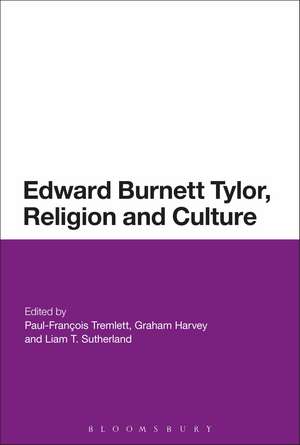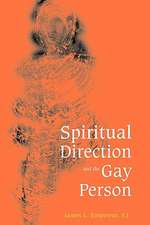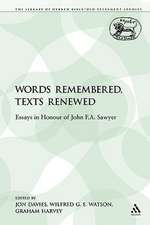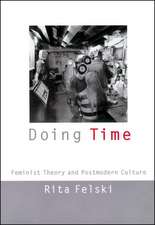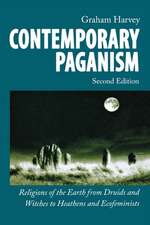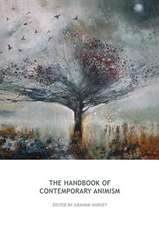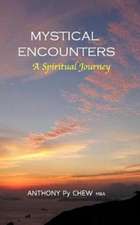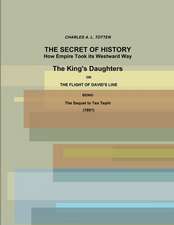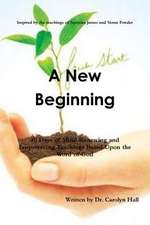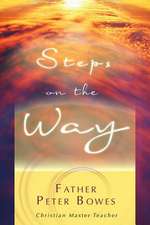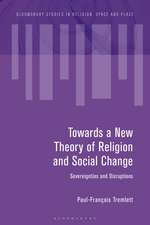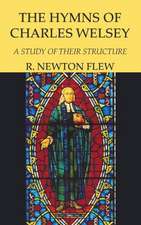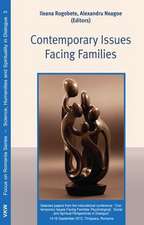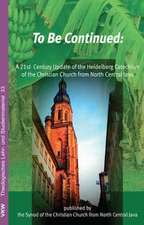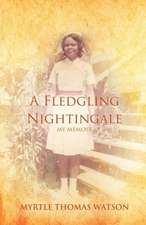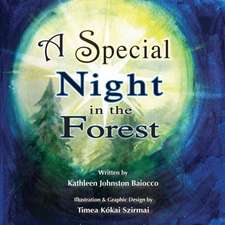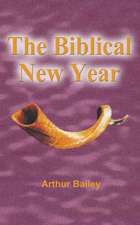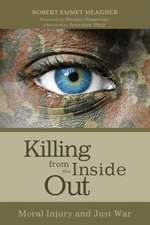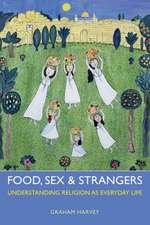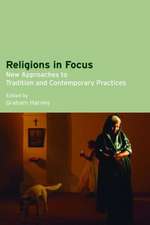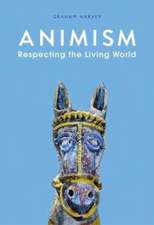Edward Burnett Tylor, Religion and Culture
Editat de Paul-François Tremlett, Graham Harvey, Liam T. Sutherlanden Limba Engleză Paperback – 20 mar 2019
| Toate formatele și edițiile | Preț | Express |
|---|---|---|
| Paperback (1) | 230.51 lei 6-8 săpt. | |
| Bloomsbury Publishing – 20 mar 2019 | 230.51 lei 6-8 săpt. | |
| Hardback (1) | 714.92 lei 6-8 săpt. | |
| Bloomsbury Publishing – 20 sep 2017 | 714.92 lei 6-8 săpt. |
Preț: 230.51 lei
Preț vechi: 296.94 lei
-22% Nou
Puncte Express: 346
Preț estimativ în valută:
44.11€ • 46.06$ • 36.42£
44.11€ • 46.06$ • 36.42£
Carte tipărită la comandă
Livrare economică 16-30 aprilie
Preluare comenzi: 021 569.72.76
Specificații
ISBN-13: 9781350105973
ISBN-10: 135010597X
Pagini: 232
Dimensiuni: 156 x 234 x 15 mm
Greutate: 0.33 kg
Editura: Bloomsbury Publishing
Colecția Bloomsbury Academic
Locul publicării:London, United Kingdom
ISBN-10: 135010597X
Pagini: 232
Dimensiuni: 156 x 234 x 15 mm
Greutate: 0.33 kg
Editura: Bloomsbury Publishing
Colecția Bloomsbury Academic
Locul publicării:London, United Kingdom
Caracteristici
Demonstrates Tylor's importance to the history of the study of religion and his contribution to contemporary controversies
Notă biografică
Paul-Francois Tremlett is Senior Lecturer of Religious Studies at The Open University, UKLiam Sutherland is a doctoral student in Religious Studies at the University of Edinburgh, UKGraham Harvey is Professor of Religious Studies at the Open University, UK
Cuprins
List of Contributors Acknowledgements Introduction: Why Tylor, Why Now?-Graham Harvey, Liam Sutherland and Paul-François Tremlett Part One: Contexts and Debates 1. 'The Debate between E. B. Tylor and Andrew Lang over the Theory of Primitive Monotheism: Implications for Contemporary Studies of Indigenous Religions', James Cox (Professor and Honorary Fellow in the School of Divinity at the University of Edinburgh, Scotland) 2. 'Tylor, "Fetishes" and the Matter of Animism', Graham Harvey (Professor of Religious Studies at the Open University, UK) 3. '"Belief in Spiritual Beings": E. B. Tylor's (Primitive) Cognitive Theory of Religion', Jonathan Jong (Research Fellow and Co-Lead for Brain, Belief and Behaviour at Coventry University, UK) 4. 'From Nineteenth- to Twentieth-Century Theorizing about Myth in Britain and Germany: Tylor versus Blumenberg', Robert A. Segal (Professor and holds a Chair in Religious Studies at the University of Aberdeen, Scotland) 5. 'Tylor and Debates about the Definition of "Religion": Then and Now', Liam Sutherland (doctoral candidate at the University of Edinburgh, Scotland) Part Two: Tylor beyond the Canon 6. 'Edward Burnett Tylor as Ethnographer', Miguel Astor-Aguilera (Associate Professor in Religious Studies at Arizona State University, USA) 7. '"Necromancy is a Religion": Tylor's Discussion of Spiritualism in Primitive Culture and in his Diary', Anne Kalvig (Professor of Religious Studies at the University of Stavanger, Norway) 8. 'Edward Tylor, Archaeologist? The Archaeological Foundations of 'Mr Tylor's Science'', Katy Soar (Visiting Lecturer at Royal Holloway, University of London, an Honorary Research Fellow at the University of Nottingham and an Honorary Research Associate at the Open University, UK) 9. 'Telling Tylorian Tales: Reflections on Language, Myth and Religion', Martin Stringer (Professor and Pro-Vice Chancellor at Swansea University, Wales) 10. 'Deconstructing the Survival in E. B. Tylor's Primitive Culture: From Memes to Dreams and Bricolage', Paul-François Tremlett (Senior Lecturer in Religious Studies at the Open University, UK) Bibliography Index
Recenzii
Not shying away from the parts that many of us today agree to be problematic, the essays in this collection shine a new light on the parts of Tylor's oeuvre that are worth reconsidering, taking seriously that, despite our advances, we may be more indebted to his generation's debates that we might at first realize.
Tylor comes alive in this elegant and coherent collection. Thinking with, and against, Tylor, an astutely chosen set of authors provide new, and rediscovered, insights into religion, academia, and what it means to be human. It is well worth reading.
A fascinating and timely volume of essays on an important early anthropologist whose ideas on animism, myth and psychic unity are now being revisited with great interest. Yet unlike other early figures such as Durkheim and Robertson Smith, Tylor remains understudied. This volume redresses the balance through a set of strong interdisciplinary chapters which range from ethnography to cognitive science. Essential reading in Religious Studies
A provocative collection of essays that does the painstaking and exciting work of re-humanizing a major founder of the fields of human sciences. Revivifiying the abstracted Tylor, best known from undergraduate lectures as a caricature of reductionist and ethnocentric thinking about religion, the authors here both disrupt popular assumptions about his place in anthropological debates within his lifetime and demonstrate his perhaps surprising relevance to many of our own today.
The present collection's efforts to move [Tylor] beyond his evolutionary framework and highlight the relevance of his work to contemporary studies, both within and outside the discipline of social anthropology, should ... be appreciated.
The editors have done a wonderful job in putting this volume together. Over the course of ten chapters the reader is skilfully guided through the theoretical, methodological and conceptual implications of Tylor's work.
Tylor comes alive in this elegant and coherent collection. Thinking with, and against, Tylor, an astutely chosen set of authors provide new, and rediscovered, insights into religion, academia, and what it means to be human. It is well worth reading.
A fascinating and timely volume of essays on an important early anthropologist whose ideas on animism, myth and psychic unity are now being revisited with great interest. Yet unlike other early figures such as Durkheim and Robertson Smith, Tylor remains understudied. This volume redresses the balance through a set of strong interdisciplinary chapters which range from ethnography to cognitive science. Essential reading in Religious Studies
A provocative collection of essays that does the painstaking and exciting work of re-humanizing a major founder of the fields of human sciences. Revivifiying the abstracted Tylor, best known from undergraduate lectures as a caricature of reductionist and ethnocentric thinking about religion, the authors here both disrupt popular assumptions about his place in anthropological debates within his lifetime and demonstrate his perhaps surprising relevance to many of our own today.
The present collection's efforts to move [Tylor] beyond his evolutionary framework and highlight the relevance of his work to contemporary studies, both within and outside the discipline of social anthropology, should ... be appreciated.
The editors have done a wonderful job in putting this volume together. Over the course of ten chapters the reader is skilfully guided through the theoretical, methodological and conceptual implications of Tylor's work.
